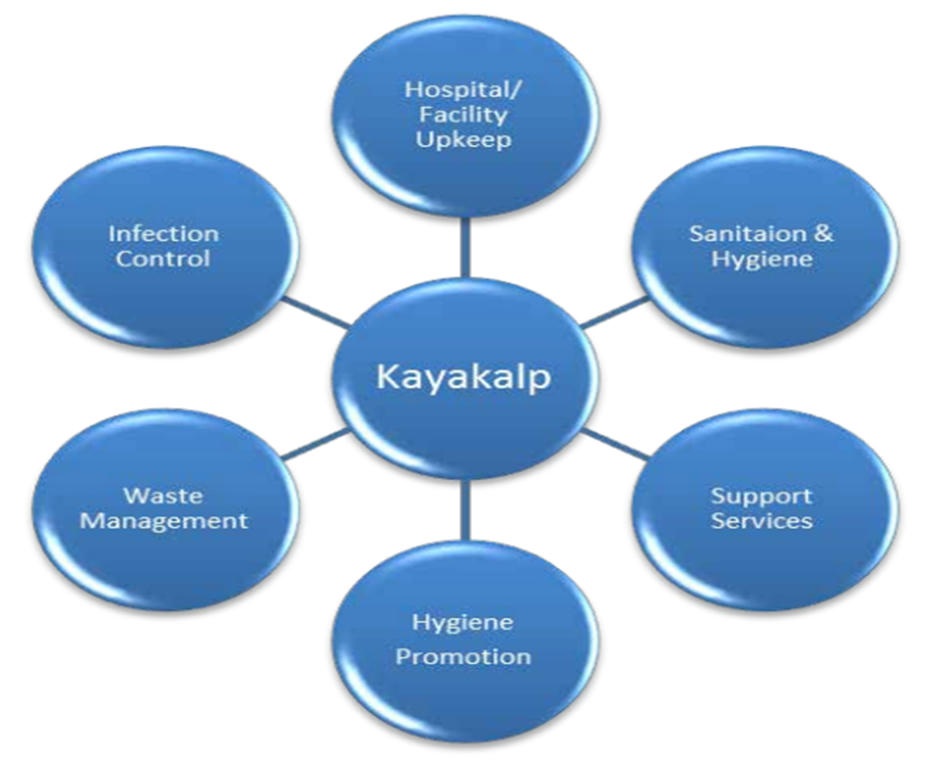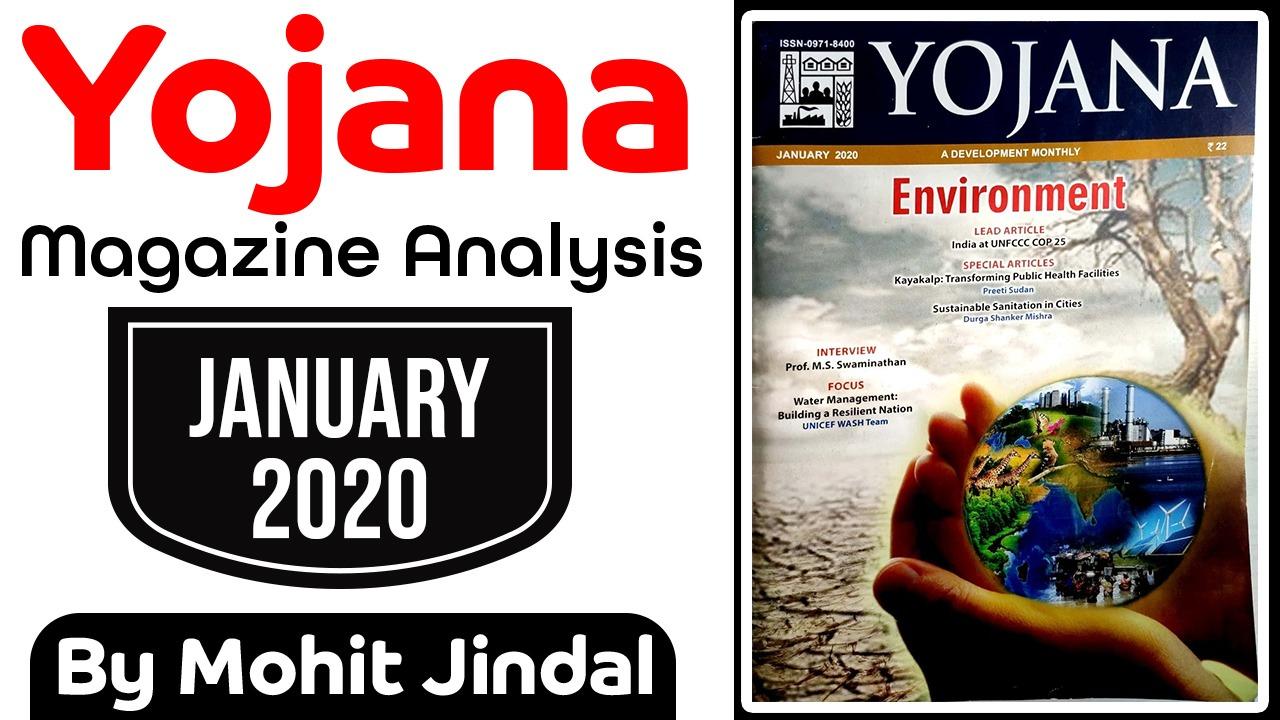Table of Contents
Key Question
- Discuss the Kayakalp initiative and its performance.
About Kayakalp
- Launched in 2015 to complement the efforts of SBM.
- Aim: To promote cleanliness, hygiene and infection control practices in public health facilities
- How?
- By incentivizing and recognizing such facilities that show exemplary performance in adhering to standard protocols
- By inculcating a culture of ongoing assessment and peer review of performance
- 6 themes of Kayakalp

How are awards given?
- After health facilities undertake their own assessment, they work on improvements.
- Subsequently, those showing improvements go through peer assessment followed by external assessment to validate the Kayakalp score.
- Winner facility receives a cash prize with a citation. Certificate and cash prize are given to all facilities scoring more than 70%.
Performance
- It began with District Hospitals but within 3-4 years, lower levels have been brought under its ambit.
- More than 25k PHFs have participated
- Kayakalp has facelifted public health facilities
- Helped changed public behaviour
- Reflected in number of satisfied patients in Mera Aspataal
- It has now been introduced in Ayushman Bharat’s Health & Wellness Centres
- It has also been extended to private sector health facilities
- QCI through NABH conducted assessment in 653 private hospitals out of which 635 were found compliant
Key initiatives for Urban Sanitation
- Swacch Bharat Mission (Urban)
- AMRUT + Smart Cities Mission
- North Eastern Region Urban Development Programme (NERUDP)
- Geotagging of toilets in association with Google
Scaling & Sustaining Sanitation
- ODF Protocols
- ODF protocol-independent third party certifies a city as ODF on satisfying certain requirements. To prevent it from slippage, the certification has to be renewed every 6 months.
- ODF+ protocol – to track maintenance of acceptable levels of cleanliness in community/public toilets so that they are functional and actually used by citizens. 739 cities are ODF+.
- ODF++ protocol – to track what was happening to faecal sludge being discharged from the toilets => for complete sewage and faecal sludge management. 292 cities are ODF++.
- SBM Water+






















 WhatsApp
WhatsApp